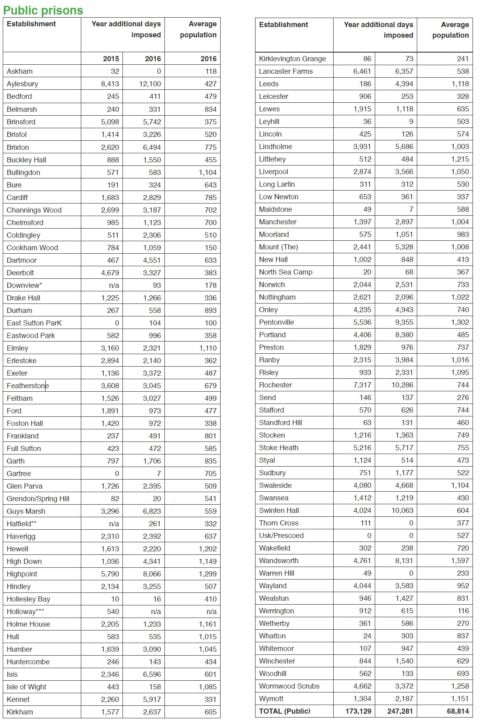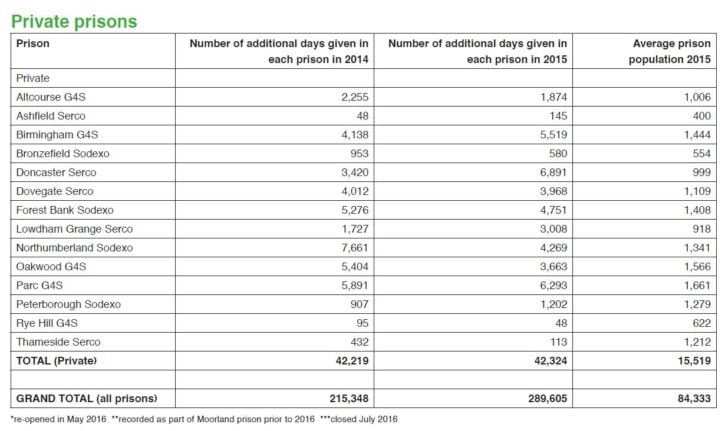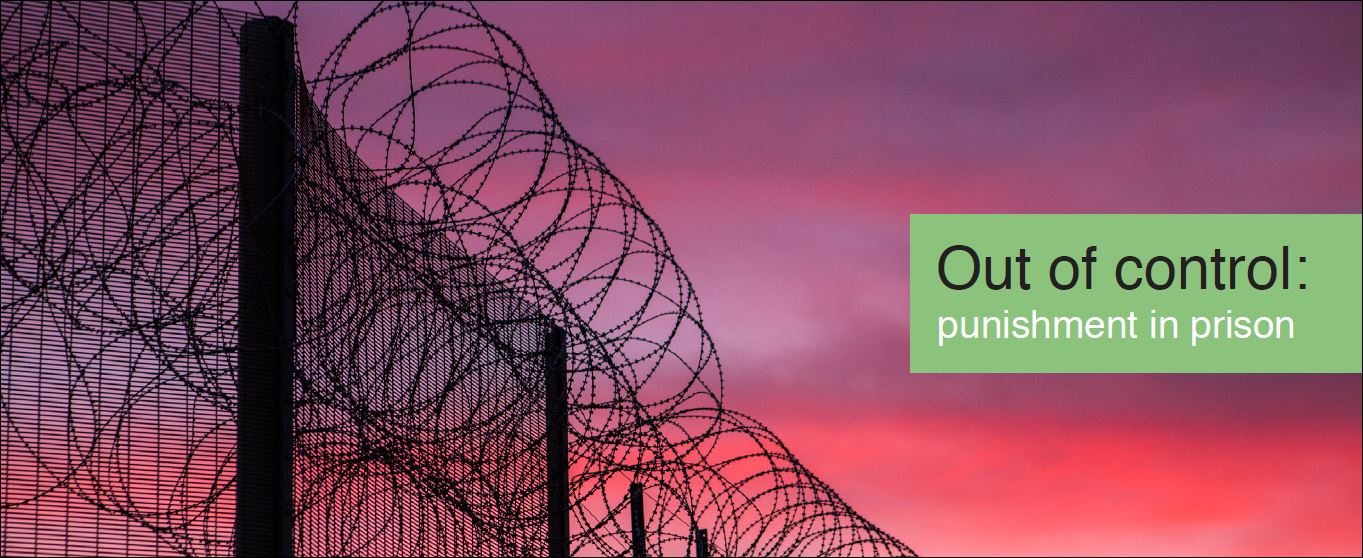Punishment in prison out of control
As prison conditions have severely deteriorated due to overcrowding and a lack of staff, there has been an explosion in the number of additional days of imprisonment imposed on prisoners for breaking prison rules.
That is the conclusion of the latest Howard League for Penal Reform investigation into prison adjudications published this Monday (4 September 2017).
Headline findings
The headline findings from the report are:
- The number of additional days handed down in 2016 increased by 34 per cent compared to 2015. Since 2014, the number of extra days imposed has increased by 75 per cent.
- In 2016, 289,605 additional days were handed down to prisoners who were found to have broken prison rules. This equates to over 793 years of additional imprisonment.
What are adjudications?
Adjudications are part of the prison disciplinary system. Crimes committed by prisoners can be referred to the police, but any prisoner who is accused of breaking a prison rule can be tried and, if proven guilty, punished through the internal disciplinary system. The hearings are called adjudications.
When a prisoner is charged with breaking a rule and faces an adjudication, the first hearing is in front of a prison governor or other senior member of prison staff (sometimes known as a governor’s or an internal adjudication). If the prisoner is found guilty a range of punishments including removing privileges, access to money and access to work can be imposed. If the prisoner is over 18 they can also be punished with solitary confinement.
Additional days cannot be imposed at an internal adjudication, but prisons can refer the case to an external adjudicator who has that power (termed external adjudications). External adjudicators are district judges who come to the prison to hear the cases referred to them. External adjudicators are able to impose up to 42 days of additional imprisonment onto the end of custodial part of a person’s sentence. Prisoners are entitled to apply for legal representation when their case goes before an external adjudicator, but not for governor’s adjudications.
Adjudications by prison
As with all such indicators (self-harm, assaults etc.) the picture varies wildly between establishments. You can see the full picture for yourselves in the graphics below. However, here are some examples of the variation:
Aylesbury, with an average population of 427, imposed 12,000 additional days in 2016.
But Bullingdon, with an average population of 1,104, imposed just 583 additional days in the same year.
Rochester and Swinfen Hall were the only two other public prisons to impose more than 10,000 additional days last year.

Doncaster (average population 999) imposed 6,891 additional days in 2016 while Peterborough (average pop. 1,279) imposed just 1,202 days.

Conclusions
The Howard League argues that additional days were originally designed for the punishment of incidents of unacceptable behaviour but now they have become a routine behaviour management tool in out of control prisons. They point out that prison governors and directors have a choice in how they respond to rule-breaking and misbehaviour by prisoners. They can manage it themselves, with loss of privileges or restorative solutions or they can refer a case to a costly external adjudicator (a judge), who has the power to impose additional days of imprisonment.
They go on, quite reasonably, to contend that excessive use of extra days is indicative of poor leadership and governors and directors who are struggling to maintain control and point out that comparable prisons use additional days at wildly differing rates.
The Howard League concludes by arguing for an end of the additional days approach:
Use of additional days should end. Misbehaviour can and should be constructively responded to by prison managers. Scotland abolished use of additional days a decade agoand there has been no discernible deterioration in prisoner behaviour as a consequence.
All prison posts are kindly sponsored by Prison Consultants Limited who offer a complete service from arrest to release for anyone facing prison and their family. Prison Consultants have no editorial influence on the contents of this site.








